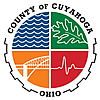Parents' Guide to Working with the Division of Children and Family Services
A Child Protection Specialist (CPS) will contact you if someone reports a concern about your children.
The concern may be related to alleged child abuse or neglect, or someone may think your family could use help. A child may also need special services through no fault of the parent.
What can I expect from the Child Protection Specialist?
A CPS will talk with you to learn more about the concern and offer support and resources if needed. In order to assess the safety, strengths, needs and risk to your children, the CPS will:
What will happen next?
If we complete an assessment and determine that there is no need for our services, we will close the case.
What can my Child Protection Specialist do to help me?
The CPS will talk with you about what supports you might need and what services make the most sense for your family and situation. Services can include:
The concern may be related to alleged child abuse or neglect, or someone may think your family could use help. A child may also need special services through no fault of the parent.
What can I expect from the Child Protection Specialist?
A CPS will talk with you to learn more about the concern and offer support and resources if needed. In order to assess the safety, strengths, needs and risk to your children, the CPS will:
- Explain the reported concerns and DCFS' process, including next steps and time frames.
- Engage you in a conversation and, when appropriate, ask for your consent to conduct assessment activities, such as interviewing your children and talking with others about your family.
- Explain what we are permitted to do without your consent for child safety concerns.
- Encourage you to talk about your concerns and help you find solutions.
- Help you provide safety for your child, if necessary.
- Invite you to a Team Decision Making meeting if there are concerns for the safety of your child.
What will happen next?
If we complete an assessment and determine that there is no need for our services, we will close the case.
- Families can continue to work with us on a voluntary basis, with their children at home.
- If we determine that children are not safe in their own home, we have a Team Decision Making meeting to decide what to do.
- You will always be included in any plan developed for your child.
- If there are no other options to keep your child safe, the CPS does have an obligation to ask Juvenile Court for custody.
- If the agency engages the court to help keep your child safe, you will be notified and your rights will be explained to you at a hearing.
- We work with parents to safely return their child as quickly as possible.
What can my Child Protection Specialist do to help me?
The CPS will talk with you about what supports you might need and what services make the most sense for your family and situation. Services can include:
- A variety of supports offered by Community Collaboratives--organizations right in your neighborhood.
- In-home or office-based therapeutic services.
- Professional services for any number of concerns including alcohol or drug use, mental health and domestic violence.
- Services for your children to help them grow and thrive.
Related programs
Related topics
Related divisions
How could we make it better?
Please leave a comment before submitting.
Thank you for your feedback
Your feedback means a lot to us. We use it to improve the experience of all of our users.

